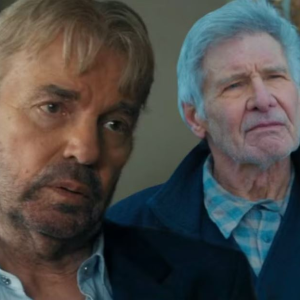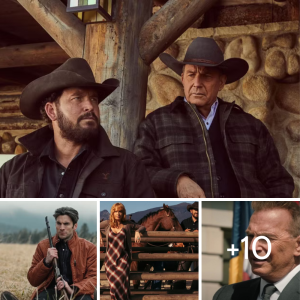In Yellowstone Season 5, Episode 12, the tragic death of Colby stands as a heartbreaking reminder of the brutal realities faced by the Dutton family. This pivotal moment
in the episode highlights the deep emotional stakes and the heavy cost of loyalty in the world of Yellowstone. Colby’s death is not just a random loss—it’s a devastating
blow that forces the characters to confront the harsh consequences of their choices and the dangers that lurk around every corner of the Dutton Ranch.
The episode, titled “Counting Coup,” centers around Case Dutton, who is relentlessly pursuing justice for the murder of his father, John Dutton. As Case works to uncover the identity of the assassin responsible for John’s death, Colby’s tragic fate is sealed in an unexpected and gut-wrenching manner. The episode’s title, “Counting Coup,” refers to an Indigenous practice in which a warrior earns honor by confronting and humbling an enemy without necessarily killing them. For Case, the pursuit of vengeance is a central theme, but his journey is also complicated by his need to honor the spirit of his father’s death without resorting to mindless violence.
While Case is off hunting down the man responsible for John’s death, Grant Horton, Colby is busy performing his duties on the ranch. The episode sees Colby bravely trying to protect Carter from a dangerous horse in a stable. Colby, always the loyal ranch hand, acts quickly to shield Carter, but in a heartbreaking turn of events, he ends up being fatally attacked by the horse. As Colby tries to steer the beast away from Carter, he is stomped on and ultimately killed.
This moment is gut-wrenching for viewers, especially because it comes at a time when Colby is one of the show’s most beloved and enduring characters. His death feels unnecessary and cruel, and it strikes a devastating blow not only to his close friends like Ryan and his lover, Tia, but also to the overall emotional core of the show. His loss is felt deeply, especially because it serves as a reminder of how quickly tragedy can strike in the unforgiving world of Yellowstone. However, Colby’s death doesn’t just mark a personal loss; it also underscores a much larger theme in the series—the cost of loyalty and the dangers inherent in the lives of the Duttons.
In the grand scheme of Yellowstone, Colby’s death may seem like just another casualty in a long line of tragic losses, but it resonates more because of the emotional connections he has with the other characters. Colby and Tia’s sweet moments earlier in the episode, where they express their love for each other, make his death all the more heartbreaking. These tender exchanges provide a stark contrast to the violence and danger that continually threaten the Dutton family, making his death feel even more senseless and painful.
Moreover, Colby’s death highlights a central issue in Yellowstone—the unpredictable and often senseless violence that surrounds the Dutton family. Just as Sarah’s death in Episode 11 was shocking and unanticipated, Colby’s death carries the same weight of random, unnecessary violence. When characters die frequently, their deaths can lose their emotional impact, but Colby’s loss hits harder because of the close relationships he had formed over the seasons.
In the midst of Colby’s tragic death, the episode also reveals more about Case Dutton and his quest for revenge. He tracks down Grant Horton, the assassin hired to kill John, and confronts him in a chilling scene. In this moment, Case shows his darker side, threatening Horton and his young daughter in a way that is out of character for him. However, instead of killing them, Case chooses to “count coup”—a symbolic act in which he humiliates his enemy without taking their life. This choice not only speaks to Case’s desire to hold onto his father’s honor but also symbolizes his complex journey of vengeance.
While the episode might have been expected to bring some resolution to the overarching plot, Colby’s death reminds viewers that in Yellowstone, there is no true closure. Each moment of triumph or revenge is inevitably followed by more pain and loss. Colby’s death is not just a plot point—it’s a reflection of the harsh world the Duttons inhabit, where loyalty is often rewarded with tragedy, and love can be as fleeting as life itself.





